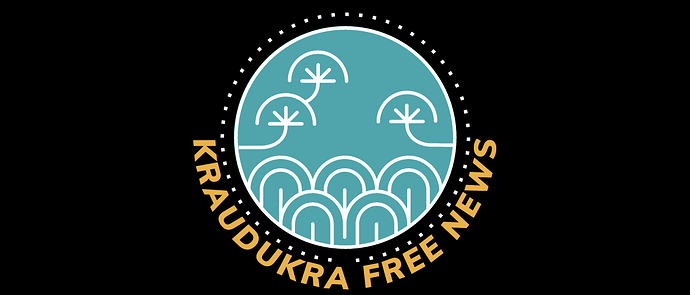Krauanagaz Government Appeals for International Aid to Combat Economic Downturn, Humanitarian Crisis
Yayyára, Krauanagaz — As the economic crisis deepens in Krauanagaz, the government is implementing a series of emergency measures to navigate through the turbulent times ahead. The situation is dire, with the conflict in Mitallduk exacerbating economic woes and deepening security concerns within Krauanagaz itself.
What Krauanagaz is describing as an ongoing civil war in Mitallduk has spilled over into neighboring Krauanagaz, leading to increased cross-border militant activity and border skirmishes. These incidents have not only resulted in casualties but have also disrupted trade routes and caused widespread fear among civilians. With Mitallduk being a key trade partner for Krauanagaz, even prior to the Münnen Protocols, the economic repercussions of the conflict are being keenly felt across the nation.
Contributing to the economic strain, the new influx of refugees fleeing violence in Mitallduk has put immense strain on Krauanagaz’s resources and infrastructure. Refugee camps in Northern and Central Krauanagaz are overcrowded, and basic necessities such as food, water, and medical supplies are in short supply. State Department officials say the government’s humanitarian aid efforts are stretched to their limits, and without additional funding, the situation is likely to deteriorate further.
The rise of militant groups like the Purity Vanguard (PV) within Northern Krauanagaz poses a significant security challenge. These extremist organizations not only target refugees but also pose a threat to government officials, aid workers, and civilians. The recent attacks on FPA agents and the arson attack on the family of Chief Investigator Malakar Zhal are grim reminders of the growing menace posed by these groups.
The economic downturn in Krauanagaz is multifaceted, with various factors contributing to its severity. The evolving conflict in Mitallduk has disrupted trade and investment, leading to a decline in exports and foreign direct investment. Additionally, the rise in militant activities has significantly increased security costs and deterred business activities, further exacerbating the economic downturn. According to the Krauanagazan State Department, the nation is actively seeking international aid and low-interest loans from allied nations and global financial institutions. Though the response from the international community has been mixed, some countries and organizations have pledged support, but others are cautious due to the volatile security situation in the region. The government is facing an uphill battle in convincing international partners to provide the necessary assistance. Sources at the State Department say that diplomatic efforts out of Yayyára are in high gear, with special envoys being dispatched to negotiate support packages. “We are in talks with our allies and international bodies to secure the necessary funds to sustain our efforts,” said Secretary of State Darius Korin.
In an unprecedented move, the government has launched a nationwide public fundraising campaign. Citizens are being encouraged to contribute to national relief funds through various channels, including online platforms, SMS donations, and community events. The campaign has been met with mixed reactions, as many Krauanagazans are already feeling the pinch of the economic downturn. The success of the public fundraising campaign remains uncertain, as skepticism and distrust toward the government runs high
The government’s other emergency measures, including tax hikes and subsidy cuts, have sparked public debate and unrest. Many citizens are already struggling to make ends meet, and the additional financial burden is met with resentment and frustration. To increase revenue, the government has introduced ‘temporary tax hikes’ on high-income individuals and profitable corporations such as Global Mobile and Omen Oil. Additionally, subsidies for non-essential goods and services are being cut, meaning that energy and utility costs will likely rise. These measures, although broadly unpopular, are deemed necessary to free up resources for critical humanitarian aid and defense expenditures explained a spokesperson for the Treasury Department. Additionally, to ensure defense expenditures remain sustainable the Defense Department is implementing cost-cutting measures and strategic realignments. This includes prioritizing critical defense projects, reducing non-essential military spending, and streamlining operations. Undersecretary of Defense for Acquisition and Resources Zhalor MeEkar emphasized, “We are committed to maintaining our defense capabilities while ensuring that every dollar is spent efficiently.”
The government is reportedly also considering the sale of non-essential state assets and strategic reserves. This includes auctioning surplus government properties and selling off certain mineral rights to raise quick capital. While this approach is seen as a last resort, it demonstrates the dire financial straits the nation finds itself in. Despite these efforts, the situation on the ground remains challenging. Refugee camps are overflowing, and the demand for basic necessities is skyrocketing. The economic measures are expected to provide some relief, but the government acknowledges that a long-term solution requires stability in Mitallduk and the eradication of militant threats within Krauanagaz.
With the economic and humanitarian crisis in Krauanagaz showing no signs of abating, the government is racing against time to implement measures that can stabilize the nation’s economy. The combination of the conflict in Mitallduk, the rise of new militant groups like the Purity Vanguard, and the economic downturn has created a perfect storm of crises. While the government is taking steps to secure funding and streamline resources, the effectiveness of these measures remains uncertain. The future of Krauanagaz, and the region at-large, hinges on its ability to navigate these turbulent times and secure both domestic and international support to sustain its humanitarian and defense efforts.
